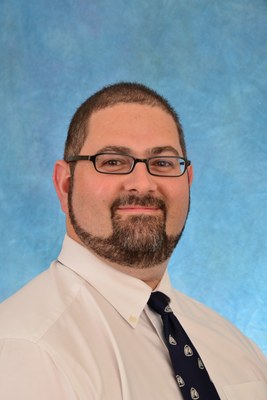Section of Interventional Pulmonology and Pulmonary Oncology
Faculty
-
Associate Professor of Medicine
Section Chief, Interventional Pulmonology and Pulmonary Oncology
Assistant Professor of Medicine
Fellow 2022 – 2023
-
Interventional Pulmonary Fellow
UNC Multidisciplinary Thoracic Oncology Program (MTOP) Clinic
- MTOP Clinic location: 2nd Floor, North Carolina Cancer Hospital, 101 Manning Drive, Chapel Hill, NC 27514
- For New Patient Appointments, call Vickie Dowdy, Intake Coordinator at 984-974-8641; fax 984-974-8616
- For Return Clinic Appointments and Radiology Test Scheduling, call 984-974-8780
Patient Questions and Instructions
- For Medical or Device (PleurX) related questions, call Tammy Allred, Nurse Coordinator (984-974-8470) during business hours.
- For Clinic or Procedure instructions/questions, call Ashley Ray, Administrative Assistant (919-966-0440) during business hours.
- After Hours Call hospital operator (984-974-4100) ask for the interventional pulmonology fellow on call.
Referring physicians: Please e-mail Dr. Akulian, Dr. MacRosty, and/or Dr. Burks and we will expedite your patients’ appointment
Our goal is to provide expeditious care to patients with malignant and benign diseases of the airways, lung tissue, and pleura in a multidisciplinary fashion with outstanding communication to both the patient and the referring physicians.
Patients with lung nodules/masses and hilar/mediastinal lymphadenopathy are evaluated and treated in a multidisciplinary approach with members from Interventional Pulmonology (IP), Medical Oncology, Thoracic Surgery, and Radiation Oncology in the weekly UNC Multidisciplinary Thoracic Oncology Program (MTOP) clinics and conference.
We are part of a larger complex airway team that involves Interventional Pulmonology (IP), Otolaryngology (ENT/Head and Neck surgery), Thoracic Surgery, and Anesthesiology. This team serves patients with complex upper and lower airway obstructions and patients requiring tracheostomy for respiratory failure or cancer.
Services Provided
Therapeutic Bronchoscopy
We provide relief of dyspnea (difficulty breathing) from cancerous and non-cancerous causes using rigid and flexible bronchoscopy techniques and state of the art equipment including:
- Ablation Techniques:
- Argon Plasma Coagulation (APC)
- Laser Ablation
- Microdebrider
- Mechanical Debulking
- Electrocautery
- Cryotherapy
- Photodynamic Therapy (PDT)
- Endobronchial Brachytherapy
- Stenting – Silicone, Metallic, and Hybrid/Covered Metallic
- Montgomery T-tube Placement
- Balloon Bronchoplasty
- Percutaneous Tracheostomy
- Bronchoscopic Lung Volume Reduction (BLVR) – Valves for COPD Treatment
Advanced Diagnostic Bronchoscopy
We diagnose, stage, and provide samples for therapeutic and prognostic testing, and place fiducial markers for Stereotactic Body Radiation Therapy (SBRT/Cyberknife) all within the same procedure and anesthesia session. We accomplish this with the most up to date and state of the art equipment.
- Electromagnetic Navigation Bronchoscopy (EMB)
- Linear and Radial Endobronchial Ultrasound (EBUS)
- Autofluorescence and Narrow-Band Imaging
- Robotic Bronchoscopy
Carolina Center for Pleural Disease Treatment and Research
We also provide consultation and treatment of benign and malignant pleural disease such as mesothelioma, metastatic cancer, connective tissue diseases, bronchopleural fistula/persistent air leak and both acute and chronic infection in concert with Medical Oncology, Thoracic Surgery and Interventional Radiology. We perform all pleural procedures under image guidance (ultrasound or CT) including:
- Ultrasound-Guided Thoracentesis
- Ultrasound-Guided Pleural and Lymph Node Biopsy
- Ultrasound-guided Small Bore Chest Tube/Pigtail Catheter Placement
- Pleural Manometry
- Tunneled Pleural Catheter (PleurRx®) Placement
- Chemical Pleurodesis/Pleural Sealing
- Medical Thoracoscopy
Diseases Evaluated and Treated
- Lung Nodules and Masses
- Lung Cancer
- Central Airway Obstruction
- Malignant/Cancerous
- Non-Malignant/Non-Cancerous
- Sarcoidosis
- ANCA associated Vasculitides
- Post-Intubation Tracheal Stenosis
- Subglottic Stenosis
- Foreign Bodies
- Tracheobronchomalacia
- Relapsing Polychondritis
- Respiratory Papillomatosis
- Pulmonary Alveoloar Proteinosis
- Post-Transplant Stenosis
- Post-Infectious Stenosis
- Pleural Effusions
- Transudative
- Heart Failure
- Hepatic Hydrothorax/Cirrhosis
- Renal Failure
- Exudative
- Malignant
- Mesothelioma
- Infectious/Empyema
- Tuberculous
- Connective Tissue Disorders
- Others
- Transudative
- Pneumothorax
- Traumatic
- Broncho-Pleural fistula
- Alveolar-Pleural fistula
- Primary
- Secondary to Lung Disease
- End Stage Severe COPD/Emphysema
Areas of Research
We are constantly striving to improve our ability to provide the most accurate diagnostic and therapeutic information in the least invasive way possible. Through an active clinical research endeavor, we are developing, evaluating, and defining minimally invasive devices, techniques, and therapies for the diagnosis and treatment of malignant and benign airway, lung, and pleural diseases.
- Device Development and Evaluation
- Lung Nodule Localization, Diagnosis, and Marking
- Therapeutics
- Intrapleural Cancer Therapies
- Endobronchial Medication Delivery and Ablation
- Peripheral Medication Delivery and Nodule Ablation
- Pathophysiology and Treatment of Immune-Therapy Related Lung Toxicities
- Mechanisms of Pleural Disease, Metastasis, and Therapeutics
Active Studies
- RETROLYSIS — A retrospective multicenter registry of the use of intrapleural lytic therapy.
- Steerable peripheral needle platform – NIH R01 Funded
- Stationary Digital Chest Tomosynthesis as an intraprocedural guidance and localization confirmation platform – NIH R01 Funded
- LCCC 1626 – Phase 1 trial of intrapleural oncolytic viral therapy in combination with PD-L1 therapy for maligant pleural effusions
- Intratumoral/lymph node injection of radiosensiting microspheres prior to SBRT
- SWIFT Trial – Trial of silver coated indwelling pleural catheters to decrease time to pleurodesis (no longer enrolling).
- Precepta – Testing airway scrapings for genetic alterations that may predict lung cancer in patients with small nodules and low to intermediate risk factors. (no longer enrolling)
- All-in-One – Trial of an Electromagnetic Navigation system for patients at intermediate to high risk of lung cancer who have small nodule (less than 3mm) to provide a diagnosis and staging within one minimally invasive procedure, utilizing both endobronchial and transthoracic approaches. (no longer enrolling)
- Refining and defining the optimal process for obtaining adequate samples for Next generation genetic sequencing of lung tumors to direct tailored oncology care.
- Characterizing and describing the mechanism of development and developing potential definitive treatments of pleural effusions (benign and malignant) using translational research methods on fluid obtained from humans and in mouse models.
Interventional Pulmonology Study Coordinator:
Ashley Delgado
Phone: 919-445-0367
Interventional Pulmonary (IP) Fellowship
We offer a comprehensive, one year, interventional pulmonology fellowship. To learn more, please visit the Interventional Pulmonary (IP) Fellowship website.
Patient Education Materials
From the American College of Chest Physicians (ACCP)
- Bronchoscopy
- Chest Tubes
- EBUS
- Lung Biopsy
- Lung Cancer
- Mesothelioma
- Thoracentesis
- Transbronchial Lung Biopsy
From the American Thoracic Society (ATS)
- Bronchoscopy
- Chest Tubes
- Living with a Tracheostomy
- Lung Cancer – General
- Lung Cancer Prevention
- Lung Cancer Staging
- Lung Cancer Treatment
- Malignant Pleural Effusions
- Nodules
- Thoracentesis
- Tracheostomy – General
From the American Cancer Society
Multidisciplinary Links


